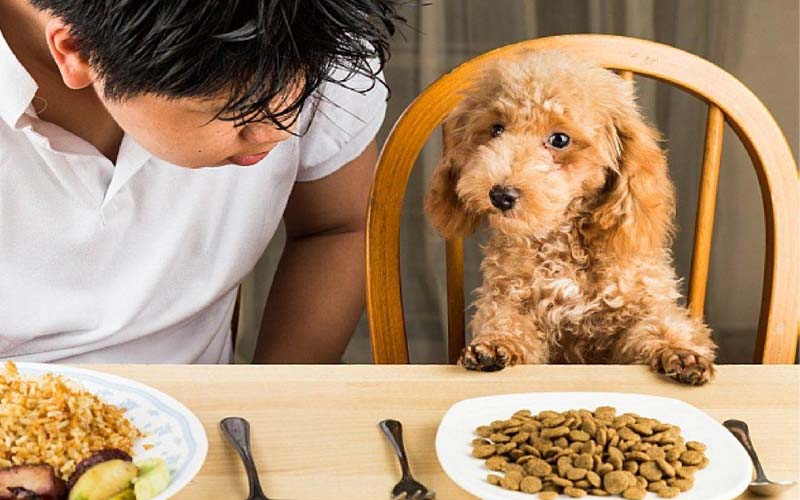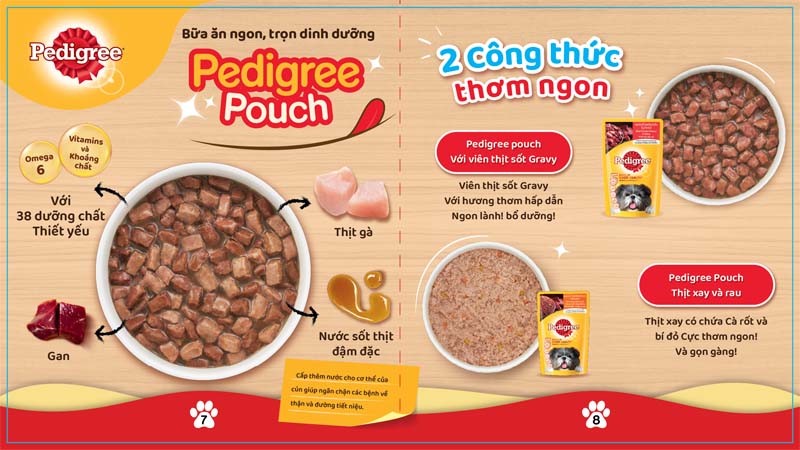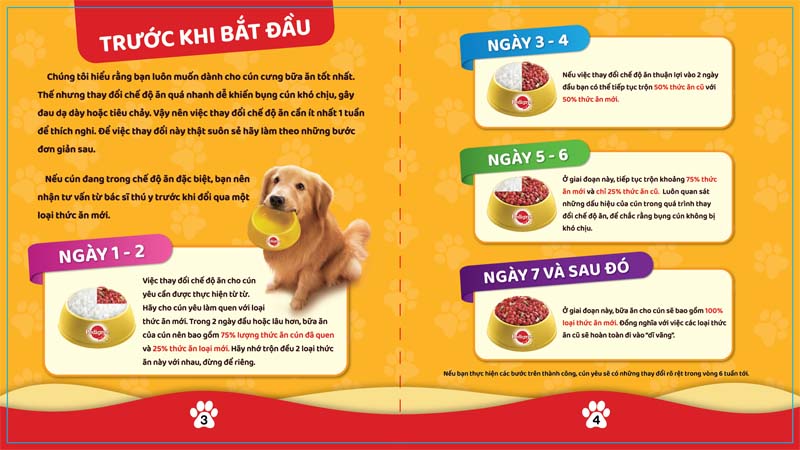Raising a puppy is a favorite hobby of many people nowadays. However, knowing how to properly take care of and feed them is still unknown to many people. Join us to find out what nutrients your furry friend needs.
1. Nutritional Requirements of Dogs

Just like us, our furry friends need nutritious meals to stay active and healthy. The essential nutrients for their survival are:
Water
Water is the most important component for sustaining the life of all living organisms, including your furry friend. Providing them with water helps maintain their normal bodily functions.
Protein
Protein is essential for building cells, muscle tissue, enzymes, and antibodies. It contains 23 different types of amino acids, of which a dog’s body can only synthesize 13 types. The remaining 10 types must be obtained through their diet.
Fat
Fat helps provide and metabolize fat-soluble vitamins A, D, E, and K. It completes your furry friend’s diet. Thanks to fat, your pup will have beautiful and healthy skin and fur. However, it is important to provide them with a moderate amount to prevent obesity.
Carbohydrates
Carbohydrates support normal reproduction in dogs. Without them, your dog may become weak and lack vitality.
Vitamins and Minerals
Although they are only needed in small amounts, vitamins and minerals play a significant role in a dog’s normal development. Minerals, in particular, contribute to the structure of strong bones and teeth.
2. Things to Keep in Mind When Feeding Your Dog

When feeding your dog, keep the following in mind:
- Adjust their food intake according to their activity level to avoid excess energy intake.
- Feeding them at fixed times helps maintain a smooth digestive system.
- Avoid overfeeding as it can lead to obesity.
- Ensure they drink enough water. Dogs that drool a lot usually need more water than others.
- Keep their food bowls clean.
- Offer a variety of foods that suit their needs and health condition.
3. Why Pedigree Is a Great Choice for Your Furry Friend
Puppies grow up much faster than humans, so they need special nutrients. A balanced diet will help boost their immune system and reduce the risk of skin problems, diabetes, and obesity.
However, the homemade meals you prepare may not fully meet their nutritional needs.
Some foods can even be harmful to their health, such as chocolate, onions, garlic, avocado, and cooked bones.
Therefore, choosing the right food for your furry friend is always a concern for many pet owners. Pedigree – is an excellent choice for your pet.
 Pedigree provides 38 essential nutrients
Pedigree provides 38 essential nutrients
Pedigree offers a complete and balanced diet with 38 essential nutrients to support your puppy’s immune system. It comes in both dry and wet forms with various flavors to ensure your furry friend enjoys healthy and tasty meals.

If you’re new to Pedigree, mix a small amount of Pedigree with their current food and gradually increase the Pedigree portion over a week.
 How to introduce Pedigree to your furry friend
How to introduce Pedigree to your furry friend
Using Pedigree not only helps you feed your puppy right but also saves you time in meal preparation. You won’t have to worry about creating a daily menu, leaving you with more time for other activities. It’s so convenient, isn’t it? Let’s “love our dogs right and feed them right”!
See also:
We have just shared with you the essential nutrients for your furry friend and some helpful tips. Hopefully, you now have more knowledge to take better care of your beloved dog.
































